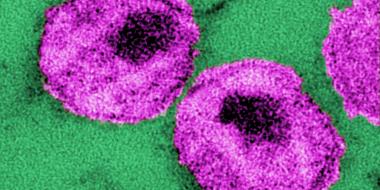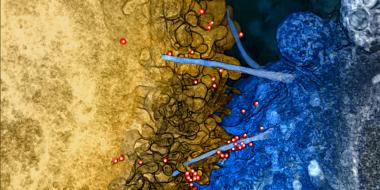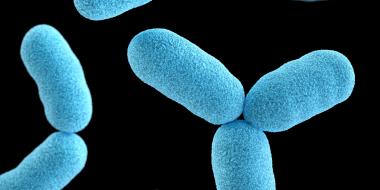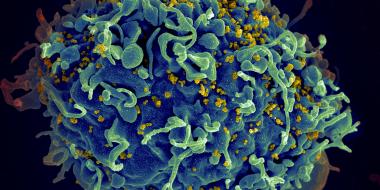Emerging infectious diseases
Generating knowledge to develop new treatments and prevention methods for emerging infectious diseases.

Working on the development of health strategies to anticipate future pandemics
The study of HIV/AIDS and of the immune system for more than 25 years has meant that IrsiCaixa's research groups have accumulated the experience necessary to tackle the different infectious threats that are rapidly and constantly appearing on a global scale. Its store of knowledge, extensive experience in developing experimental studies, and its possession of a level 3 biosafety laboratory has positioned IrsiCaixa as a world-leading institution in the field of infectious diseases.
Knowledge, prevention and treatment
IrsiCaixa works to understand emerging infectious diseases from the ground up, investing its efforts in isolating emerging pathogens and studying how they work. What infection mechanisms do they use? What mutations characterise them? How do they affect the human body? These are some of the questions that IrsiCaixa seeks to answer with the goal of improving prevention and treatment of viruses such as Ebola, monkeypox, etc. Its strategies include isolation of different viruses from infected people, characterization of immune responses to pathogens, evaluation of the effectiveness of different drugs using laboratory techniques, and the development of new diagnostic techniques adapted to situations as variable as the outbreak of a new pandemic.
One Health: zoonoses
The concept of One Health defines health not only as human health, but also as human, animal, and environmental health combined. The fact that globalization and deforestation have forced humans to increasingly share spaces with animals facilitates the emergence of zoonoses, i.e., infectious diseases characteristic of domestic or wild animals that are transmitted to humans. In fact, 75% of emerging human infectious diseases are caused by animal-derived pathogens, and global spread is increasing, due to greater human interconnectedness. Climate change is an additional factor, as it is promoting the arrival of new mosquitoes that act as vectors of viruses whose impact was previously limited to certain populations; now, however, such viruses, e.g., dengue fever, are becoming more frequent in our environment due to temperature changes. IrsiCaixa conducts research into emerging infectious diseases with a view to developing the necessary tools to combat new pathogens and anticipate new pandemics.




